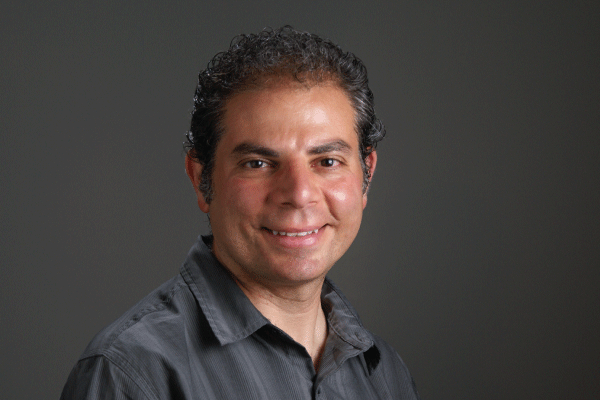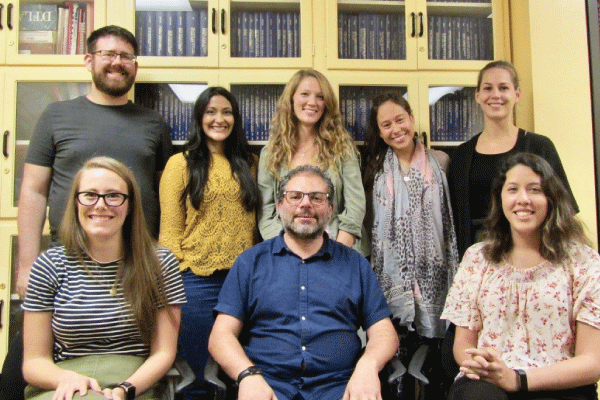First Person
Careers Up Close: Bassam Khoury on How Mindfulness Breeds Compassion

Bassam Khoury is an assistant professor of education and counseling psychology at McGill University, where he studies how mindfulness practices can be applied to improve the therapeutic process for practitioners and their patients. Through his research, Khoury seeks to understand how these practices are embodied and how mindfulness can contribute to building a more compassionate world.
- Current role: Assistant professor in the Department of Educational and Counseling Psychology and director of the McGill Mindfulness Research Lab, McGill University, Canada, 2016–present
- Previously: Postdoctoral fellowship in mindfulness psychology, Harvard University, 2014–2016
- Terminal degree: PhD in in clinical psychology, Université de Montréal, Canada, 2007–2013
- Recognized as an APS Rising Star in 2018
Mindfulness Meets Compassion
I’ve been doing research on mindfulness since I started my PhD. I am focusing now on defining, conceptualizing, and measuring mindfulness using the new notion of embodied mindfulness. I am also moving toward studying compassion, which goes hand in hand with mindfulness.
Our clinical applications include a project with people who self-harm, a project on addiction, and a project with law enforcement, as well as one exploring how to help new counselors adapt to the ambiguous nature of psychotherapy, where there may not always be structured guidelines for how to meet the needs of each client. We are trying to make a contribution to the definition of mindfulness and to broaden the research related to applications of mindfulness in both the clinical and social spheres.
Starting Out
When I started researching mindfulness for my PhD around 2007 at the Université de Montréal, I faced a lot of resistance from a lot of people in the field. Funding wasn’t easy. There was a lot for the field to catch up on in terms of mindfulness and compassion, and many were questioning if they could even be studied scientifically.
Then and now, I have tried to be very direct in how I approach research related to mindfulness and compassion. I relate them to their Buddhist origins. I will not sugarcoat it and say my work came from researchers like Jon Kabat-Zinn (who studied mindfulness-based stress reduction at the University of Massachusetts Medical School). I respect him highly, I think he contributed a lot to the Western science of mindfulness, but also I will speak about mindfulness’s Eastern, Buddhist roots. These things clash sometimes, but I want people to understand the implications of mindfulness not as a new-wave strategy or something like that, but as something much deeper. I really appreciate APS for giving me the Rising Star Award because it’s not easy sometimes for people to understand the impact and importance of the research we are doing.
Landing the First Job
After my PhD, I wasn’t sure where to go. I have a clinical degree, so I was seeing patients, but I wasn’t sure about academia. Through my reading, I discovered Ellen Langer, who had become Harvard’s first woman professor of psychology in the 1970s. Her perspective on mindfulness is sociocognitive rather than meditative, it’s more about changing mindsets and being open to new information and creativity, but I found her very inspiring and very courageous. So, I wrote her an email about trying to put our perspectives on mindfulness together, and I ended up being able to start my postdoc with her.
About 12 months into my postdoc, I applied to the Department of Educational and Counseling Psychology at McGill. I got the job and had to leave my postdoc early. When you get a job, you cannot say no because you don’t know when another job will come along.

Embodying Mindfulness
Embodied mindfulness focuses on the link between the mind and the body. An example of embodied mindfulness comes from the Five Facet Mindfulness Questionnaire, which includes the statement, “When I am in the shower, I notice the water on my body.” This multidirectional link between the mind and the body is a central part of mindfulness that we are trying to emphasize.
Conceptualizing Compassion
The first element of compassion is a cognitive dimension, meaning how I think about myself or how I think about others. If I think about myself “I’m a horrible person, I’m bad, I’m broken,” or if I think about others “They are horrible, they are bad people, they don’t deserve anything,” things don’t go well.
The second part is feeling the emotion of compassion. There is an emotional link between self-compassion and compassion toward others. The feeling of compassion is associated with an internal sensation of warmth (in Buddhism it is called “warm-heartedness”), a feeling of unlimited love with no specific attachment or desire.
The third part is behavioral: how I act or intend to act. Do I act harshly toward myself or others? Do I act kindly toward myself or others?
These are the three main dimensions, and we can add to them an interpersonal dimension—for example, how much I am able to accept help from others, how much I help others, and how much I tend to use my own suffering as a way to connect to others.
Combating Crises With Compassion
The impact of COVID-19 is horrible in terms of the lives that have been lost and are still being lost internationally. At many times, also, I feel sad for the sense among some people that we will almost need to forget about this when it’s over, as if it was just a bad episode. What’s happened with COVID-19 isn’t purely accidental—I would never accuse anyone of intentionally allowing it to spread, but our behavior toward nature and animals in particular has contributed.
I’m not a biological scientist, but I’ve read many papers saying how COVID-19 came to humans, and the most scientifically appealing argument is that it was transferred from bats or another animal. We are destroying their habitats, which means we are getting in much closer contact with them and other animals that may host infectious diseases than we would otherwise. If we want to save the planet, if we want to prevent another virus like COVID in the years to come, we need to be more mindful and compassionate in how we deal with animals and nature.
Minding the Lab
Students constitute a cornerstone of the McGill Mindfulness Research Lab. I think every lab has a different philosophy or objective, and for me it’s extremely important that they are joining the lab not just because they found my research interesting but because they are committed to making a change, to making a contribution to a field that has value and meaning to others.
From there, my method is to foster this commitment in them. Most of my students have a project that is 100% their own. They ask for my supervision and my contribution, but they focus on what they want.
Do you know an early-career researcher doing innovative work in industry or academia who might be a good fit for Careers Up Close? Contact the Observer.





APS regularly opens certain online articles for discussion on our website. Effective February 2021, you must be a logged-in APS member to post comments. By posting a comment, you agree to our Community Guidelines and the display of your profile information, including your name and affiliation. Any opinions, findings, conclusions, or recommendations present in article comments are those of the writers and do not necessarily reflect the views of APS or the article’s author. For more information, please see our Community Guidelines.
Please login with your APS account to comment.